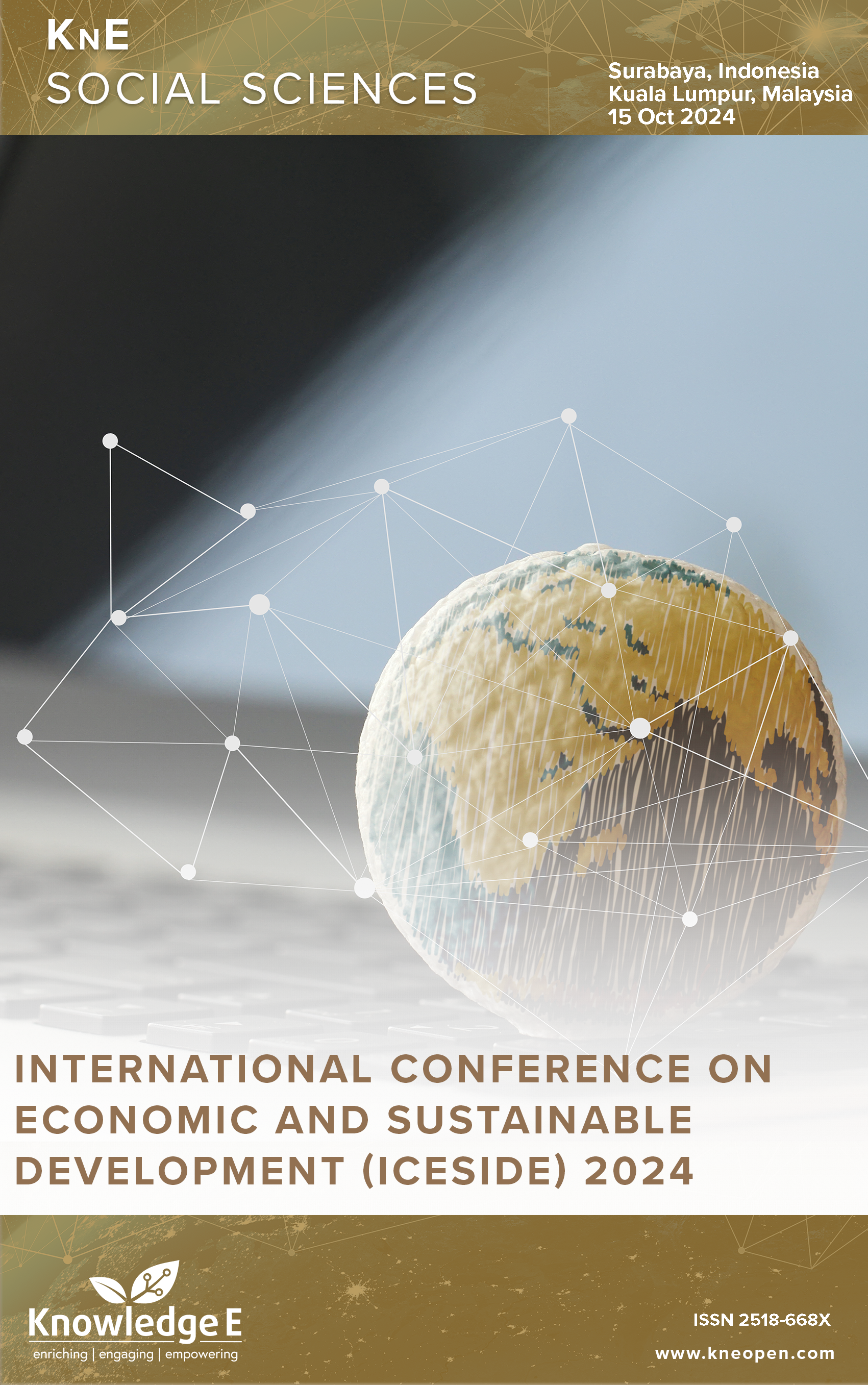Analysis of Stakeholders for Marine Fisheries Cultivation Through Floating Cages in Sumenep Regency's The Archipelagic Region
DOI:
https://doi.org/10.18502/kss.v10i5.18110Keywords:
stakeholders, floating cage, archipelagic regionAbstract
The research objectives of this study are: 1) knowing the variety of stakeholders in marine fisheries cultivation, 2) knowing the role and profile of marine fisheries cultivation stakeholders, and 3) the level of importance and influence of stakeholders in marine fisheries cultivation. The method used in this research is stakeholder analysis. Stakeholder analysis is used to identify all parties that meet the definition of stakeholders including parties that may be influenced or affect the results of marine fisheries cultivation activities in Sapeken District. The results showed various stakeholders namely fishing communities (actors), government, entrepreneurs and academics with their level of interest and influence in aquaculture through floating cages. This research is expected to contribute to the development of the concept of coastal and small island economies.
References
Aftabuddin S, Hussain G, Mamun A, Failler P, Drakeford B. On the potential and constraints of mariculture development in Bangladesh. Aquacult Int. 2021;29(2):575– 93. DOI: https://doi.org/10.1007/s10499-020-00643-9
Aivaz KA, Stan MI, Vintilă DF. Why Should Fisheries and Agriculture Be Considered Priority Domains for Maritime Spatial Planning in the Black Sea? A Stakeholder Perspective. Ovidius University Annals. Economic Sciences Series. 2021;21(2):12– 20. DOI: https://doi.org/10.61801/OUAESS.2021.2.02
Bendtsen EB, Clausen LP, Hansen SF. A review of the state-of-the-art for stakeholder analysis with regard to environmental management and regulation. J Environ Manage. 2021 Feb;279:111773. DOI: https://doi.org/10.1016/j.jenvman.2020.111773
Bjørkan M, Billing SL. Commercial seaweed cultivation in Scotland and the social pillar of sustainability: a Q-method approach to characterizing key stakeholder perspectives. Front Sustain Food Syst. 2022;6(1):795024. DOI: https://doi.org/10.3389/fsufs.2022.795024
Galparsoro I, Murillas A, Pinarbasi K, Sequeira AM, Stelzenmüller V, Borja Á, et al. Global stakeholder vision for ecosystem-based marine aquaculture expansion from coastal to offshore areas. Rev Aquacult. 2020;12(4):2061–79. DOI: https://doi.org/10.1111/raq.12422
Malizia, Emil, Renski, and Drucker. Understanding local economic development. Taylor & Francis: 2021. DOI: https://doi.org/10.4324/9780367815134
Mitincu CG, Niţă MR, Hossu CA, Iojă IC, Nita A. Stakeholders’ involvement in the planning of nature-based solutions: A network analysis approach. Environ Sci Policy. 2023;141:69–79. DOI: https://doi.org/10.1016/j.envsci.2022.12.022
Noor M, Fourqoniah F, Aransyah MF. Local government policy analysis in implementing strategic roles of marine and fisheries development in East Kalimantan, Indonesia. Aquacult Aquarium Conserv Legis. 2022;15(1):502–9.
Rahimi F, Yazdanpanah M, Gholamrezai S, Ahmadvand M. An analysis of the stakeholders of groundwater resources management in Iran. Environ Sci Policy. 2022;136:270–81. DOI: https://doi.org/10.1016/j.envsci.2022.06.014
Salas LE, Vieira LR, Guilhermino L. Sustainable fishing and aquaculture activities in the Atlantic coast of the Portuguese North Region: multi-stakeholder views as a tool for maritime spatial planning. Sustainability (Basel). 2021;13(2):663–78. DOI: https://doi.org/10.3390/su13020663
Syandri, Hafrijal, and Munzir, A. Floating cage aquaculture production in Indonesia: assessment of opportunities and challenges in Lake Maninjau. AIMS Environ Sci. 2022;9(1):223–35. DOI: https://doi.org/10.3934/environsci.2022001
Yu J, Liu J. Policies in the development of offshore cage aquaculture in China: evolution, performance, and prospects. Rev Fish Sci Aquacult. 2023;31(2):216–32. DOI: https://doi.org/10.1080/23308249.2022.2103644
Yu J, Yin W. Exploring stakeholder engagement in mariculture development: challenges and prospects for China. Mar Policy. 2019;103(1):84–90. DOI: https://doi.org/10.1016/j.marpol.2019.02.036

